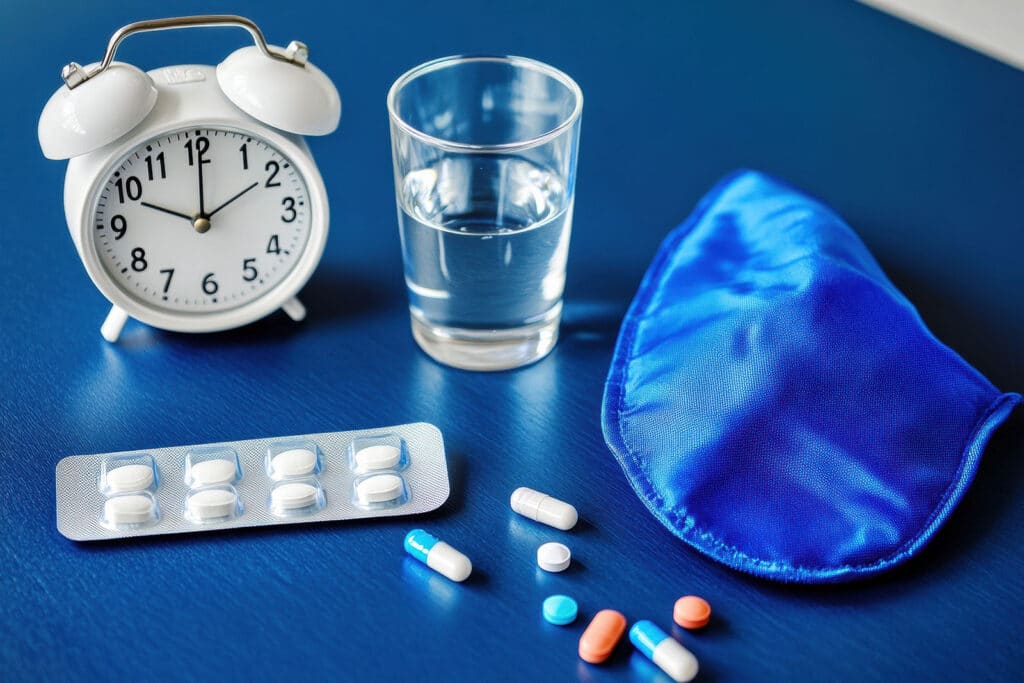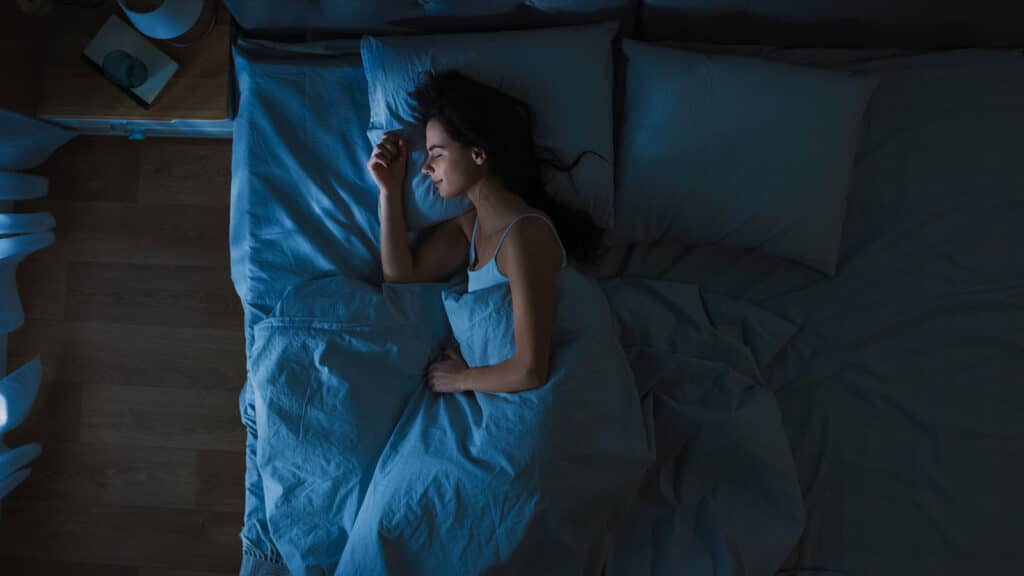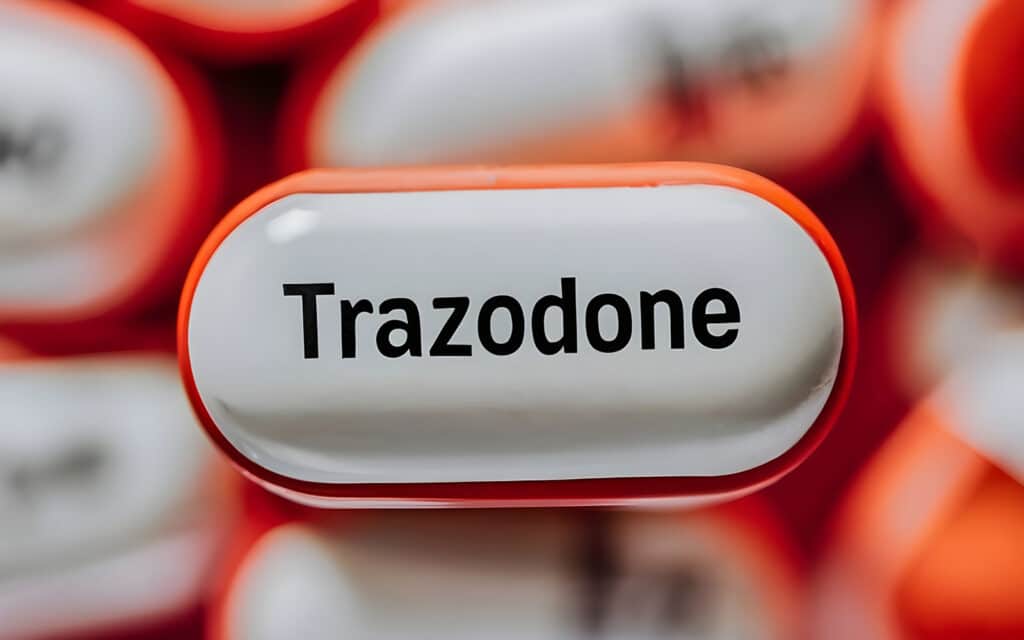You took a sleeping pill to get some rest, but something urgent has come up, or maybe the pill hit harder than you expected, and now you’re fighting a brain fog you weren’t ready for.
If this sounds familiar, you’re not alone. Many people find themselves in the same situation of needing to reduce the effects of a sleeping pill immediately.
This article walks you through exactly what you can do, right now, to help your body and mind regain alertness safely. We’ll also talk about the types of sleep medications, how they work, and what long-term strategies might help if this becomes a recurring issue.
Let’s start with the most important factor: your specific situation.
Understanding Your Situation
When it comes to sleep aids, context is everything. What works for one person may not work for another, and how your body responds to a sleeping pill can vary dramatically depending on several factors.
Here are a few common situations:
First-Time User Reactions
According to a CDC report, more than 8.4% of adults use sleeping pills, and this percentage is double the amount recorded ten years ago. Insomnia is quite prevalent, and the use of medications to cope with it is on the rise.
People who are new to sleep medication often don’t realize how strongly it can affect them. You might feel intensely drowsy, mentally slow, or even slightly disoriented.
Some people are more sensitive than others to prescription sleeping pills, especially those in the Z-drug family like Ambien and Lunesta.

Long-Term Users Who Feel “Stuck”
If you’ve been taking sleeping pills for weeks, months, or even years, your body may have developed a tolerance.
Ironically, this can lead to a stronger-than-expected effect when you try to adjust your dose or switch medications. You might also experience rebound insomnia if you’re between doses or trying to wean off the drug.
Unexpected Interactions
Many people unknowingly combine sleep aids with other substances, like alcohol, antihistamines, or even antidepressants, that increase sedation.
These combinations can deepen the effects of the medication and increase the risk of life-threatening side effects, especially in older adults or those with health conditions like sleep apnea.
In fact, various studies showed that people above 60 experience daytime fatigue, cognitive function deterioration, and even hallucinations. The side effects can go as far as feeling depressed and having suicidal ideation.
High Stress, Poor Sleep, or Health Changes
When you’re exhausted, under stress, or dealing with physical illness, a standard dose of a sleeping pill can hit much harder than usual.
It’s also common for people with mental health issues like anxiety or depression to experience heightened sedative effects, particularly if their medication hasn’t been adjusted recently.
In all these cases, the first step is to acknowledge your state and make choices that align with your current level of sedation and risk. Then, you can move on to immediate, practical steps.

Why Some Pills Hit Harder Than Others
Not all sleeping pills are created equal. The type, dose, and duration of your sleep medication have a huge influence on how intense these effects will be, as well as how long they’ll last.
Here’s a quick comparison of common types:
Z-Drugs (Ambien, Lunesta, Zolpidem)
These meds are designed for short-term treatment of insomnia. They work quickly and leave the system faster than benzodiazepines, but they can still cause next-day drowsiness, memory problems, or sleepwalking.
Benzodiazepines (Temazepam, Diazepam)
These affect GABA receptors more broadly, offering muscle relaxation and anxiety relief alongside sedation. They tend to have longer half-lives, they’re especially dangerous for older users, and they carry a higher risk of dependence and withdrawal symptoms.
Over-the-Counter Sleep Aids
Usually, these are antihistamines like diphenhydramine found in Benadryl and some sleep tablets. They can cause deep drowsiness that lingers long into the following day.
While often considered “mild,” they can be quite strong, especially in combination with alcohol or other sedatives.
Melatonin and Herbal Supplements
Though milder and naturally occurring, melatonin can still affect alertness, particularly if used in high doses or taken too close to waking hours. Some people also report groggy feelings after taking valerian or magnesium.
Knowing which type of pill you’ve taken can help you manage expectations and prevent potentially harmful decisions like combining it with stimulants to “wake up faster.”

7 Effective Ways to Reduce the Effect of Sleeping Pills
If you need to counteract the sedative effects of a sleeping pill, here are seven practical strategies that may help. Their effectiveness can vary depending on the type of medication, your dosage, and your tolerance.
1. Move Your Body
Gentle movement is one of the fastest ways to shake off drowsiness. Physical activity increases your circulation, helping your body metabolize the medication faster, while also triggering the release of stimulating hormones like adrenaline and cortisol.
Even simple actions like standing up, walking around the house, stretching your arms, or stepping outside can help wake up your system.
If you’re up for it, a brisk five-minute walk in fresh air can work wonders. Movement doesn’t have to be vigorous; the key is to get your blood flowing and shift your body out of passive mode.
2. Hydrate Strategically
Water might seem basic, but hydration plays a key role in how quickly your liver and kidneys can process medications. If you’re even mildly dehydrated, your body may hold onto sedatives longer, making you feel more sluggish.
Drinking a glass or two of plain water can kickstart things. For an extra boost, try adding a squeeze of lemon or a few slices of cucumber. The refreshing taste and scent can engage your senses while encouraging you to sip more.
3. Stimulate Your Senses
Your brain responds strongly to environmental cues, and giving it something sharp and stimulating to focus on can help counteract the sleepiness.
Bright light, whether from opening a curtain or turning on all the room lights, can signal your internal clock that it’s time to be alert.
Inhaling invigorating scents such as peppermint, eucalyptus, or citrus peel can also trigger your body’s wake-up mode. Even chewing strong mint-flavoured gum or using a splash of mouthwash can help shake off that thick, sedated fog.
4. Try Caffeine, with Caution
A moderate dose of caffeine, like one cup of coffee or tea, may help counteract sedative effects. However, timing and your body’s sensitivity matter. If you took a longer-acting medication or are sensitive to stimulants, caffeine might make you anxious or jittery.
5. Use Cold Exposure
Cold showers, cold compresses on the face, or a splash of icy water can drive your body into a more alert state. This tactic works by activating your sympathetic nervous system, which boosts adrenaline and mental clarity temporarily.
6. Take a Short Nap
It may sound counterintuitive, but a 20–30-minute power nap can help you “ride out” the peak drowsiness period and wake up with a clearer head. It’s especially effective if you’re past the window of maximum drug absorption and metabolism has already begun.
7. Support Liver Function with a Light Snack
Some foods, particularly those rich in antioxidants, healthy fats, and fiber, can support your liver in metabolizing substances more efficiently.
Try a small portion of something like avocado toast, a banana with peanut butter, or a handful of nuts. Avoid heavy meals, which may prolong sleepiness.

When to Call for Medical Help
While the strategies above are safe for mild to moderate sedation, there are times when the effects of sleeping pills can become dangerous.
Seek immediate medical help if:
- You feel faint, dizzy, or unable to stay conscious
- Your breathing slows noticeably or becomes shallow
- You experience confusion, hallucinations, or erratic behavior
- Someone else can’t wake you up after taking a sleeping pill
- You’ve mixed medications and don’t know the interaction risks
Call 911 or Poison Control, especially if tapering was not supervised, or you’re experiencing possible withdrawal symptoms after missing a dose. Your safety always comes first.
Why Detox Is a Safer Long-Term Choice
If you’re reading this because this isn’t the first time you’ve struggled with sleeping pills, you’re not alone. Many people begin with short-term use but find themselves relying on sleep medication more often than planned.
Here’s why addiction treatment and medical detox can help:
- Professional tapering reduces the risks of withdrawal
- You get monitored for dangerous reactions, especially from long-term benzodiazepine use
- Underlying mental health issues like anxiety, PTSD, or depression can be addressed
- You learn healthier, lasting strategies to promote natural sleep
- Programs include therapy, lifestyle changes, and CBT (Cognitive Behavioral Therapy) for chronic insomnia
Facilities like Recreate Behavioral Health Network offer personalized care that helps you break the dependence on pills, without sacrificing sleep quality or mental well-being.

Final Thoughts
Sleep is vital, but so is feeling safe, clear-headed, and in control. If you find yourself regularly needing to “undo” the effects of sleep medication or feeling stuck in a cycle of dependence, it’s time to get support.
At Recreate Behavioral Health Network, you can find sustainable solutions. Whether you’re looking to reduce your reliance on sleep aids, explore a supervised detox, or learn better sleep hygiene, we’re here to guide you, compassionately and professionally.
Reach out today to speak with a care coordinator and start your journey back to healthy, natural sleep.










